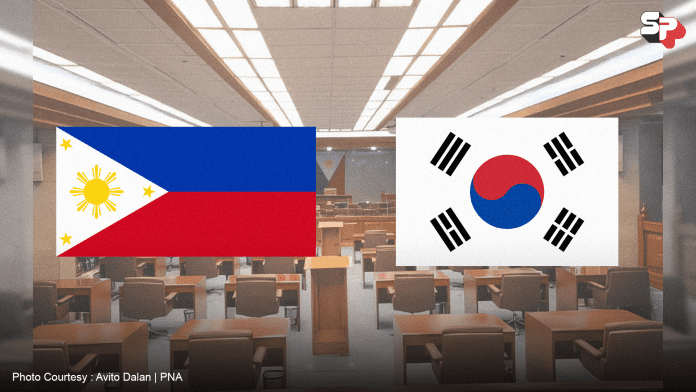MANILA – The Senate on Monday approved Senate Bill Nos. (SBN) 2415, 2451, and 2804, as well as the resolution concurring to the country’s free trade agreement (FTA) with South Korea.
Garnering 20 affirmative votes, one negative and zero abstention, SBN 2415 or the creation of a value-added tax (VAT) refund mechanism for non-resident tourists will complement the Marcos administration’s effort to boost tourism, according to Senator Sherwin Gatchalian.
“By allowing foreign visitors to claim VAT refunds on goods they purchase in our country, we create an environment that not only attracts more tourists, but also encourages them to spend more on our products which will eventually be taken out of the country,” Gatchalian said.
He expressed optimism that the potential rewards of the proposed measure “far outweigh its risks” not just for short-term gains, but for the long-term growth of the tourism industry and economy as a whole.
“The revenue losses we may incur from these refunds will be offset by the increased spending of tourists, which in turn will generate more jobs, stimulate local industries, and ultimately boost our economic activity,” Gatchalian noted.
The senator cited a projection of the National Economic and Development Authority that the proposed new policy will generate between PHP3.3 billion and PHP5.7 billion per year, and create additional employment opportunities of as much as 7,000 per year until 2028.
Senate Minority Leader Aquilino Pimentel III was the only one who voted “no” to the measure, citing exposure of the government to further tax leakages, giving away PHP4 billion of Filipino taxpayers’ money to foreigners and the potential flaw on tracking tourist expenditures.
Meanwhile, SBN 2451 or the Ligtas Pinoy Centers Act will require every city and municipality to construct permanent typhoon-resilient and earthquake-proof evacuation centers.
Senate President Pro Tempore Jinggoy Estrada said the evacuation centers will be the “safe refuge and decent shelters” of displaced families during natural calamities and other emergencies.
“It will be specially designed to cater to the specific needs of the elderly, persons with disabilities and the children. We hope to address the perennial learning disruption of our students as classrooms have always been the go-to temporary accommodation during typhoons, floods and earthquakes,” he said.
On the other hand, SBN 2804 or the New DBP Act provides the Development Bank of the Philippines the additional capacity to deal with the increased demand of financial resources for different projects from vital sectors.
“Maraming Pilipino ang naghahangad ng pagkukunan ng pondo para sa kani-kanilang projects na lubos na makakatulong sa holistic development ng buong bansa (Many Filipinos are seeking sources of funds for their respective projects that will greatly contribute to the holistic development of the entire country),” bill sponsor Senator Mark Villar said.
“Isa sa mga paraan para makamit natin ito (One of the ways we can achieve this) is to promote financial inclusion and to enhance accessibility of Filipinos needing additional resources for development projects,” he added, noting that this the “very mandate” of the DBP.
“This is a commitment to revitalizing our economy and addressing the pressing needs of various sectors by augmenting the bank’s capacity to support infrastructure, agriculture, and small businesses. which are all vital to achieve sustainable growth.”
Senator Joel Villanueva said the bill is in response to the “changing times” that requires the government to provide Filipinos with more resources to fund developmental projects and ventures.
“We are hopeful that the new charter of the DBP will ultimately contribute to the provision of more jobs to the Filipino people, foster innovation, and drive inclusive growth,” Villanueva said.
Pimentel abstained during voting for the New DBP Act.
Free trade
Meanwhile, the Senate approved Resolution No. 1188 which aims to enhance the country’s economic competitiveness within the Association of Southeast Asian Nations (ASEAN) region through the FTA with South Korea.
The FTA seeks to attract more foreign direct investments and secure better trade concessions compared to existing agreements like the ASEAN-Korea Free Trade Agreement and the Regional Comprehensive Economic Partnership.
By expanding its FTA network, the Philippines targets to promote sustainable and high-quality investments, focusing on areas such as industrial development, innovation, research and creative industries.
Signed in Jakarta, Indonesia on Sept. 7, 2023, the agreement was ratified by President Ferdinand R. Marcos Jr. and submitted to the Senate on May 13, 2024 for approval, as required by the constitution. (PNA)

